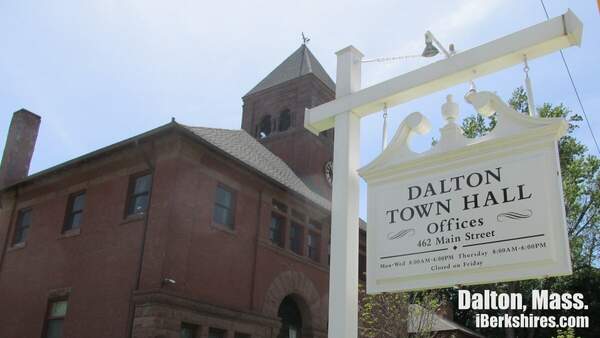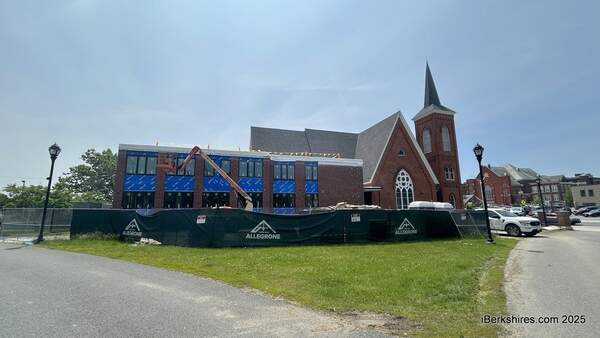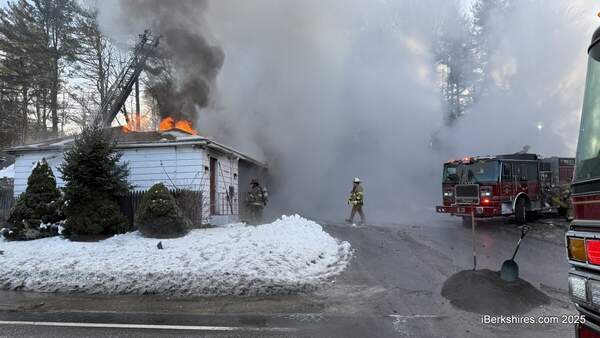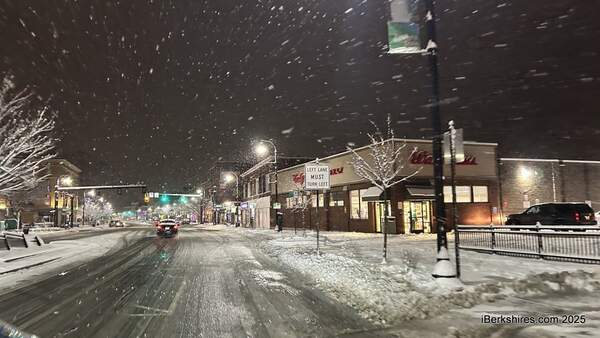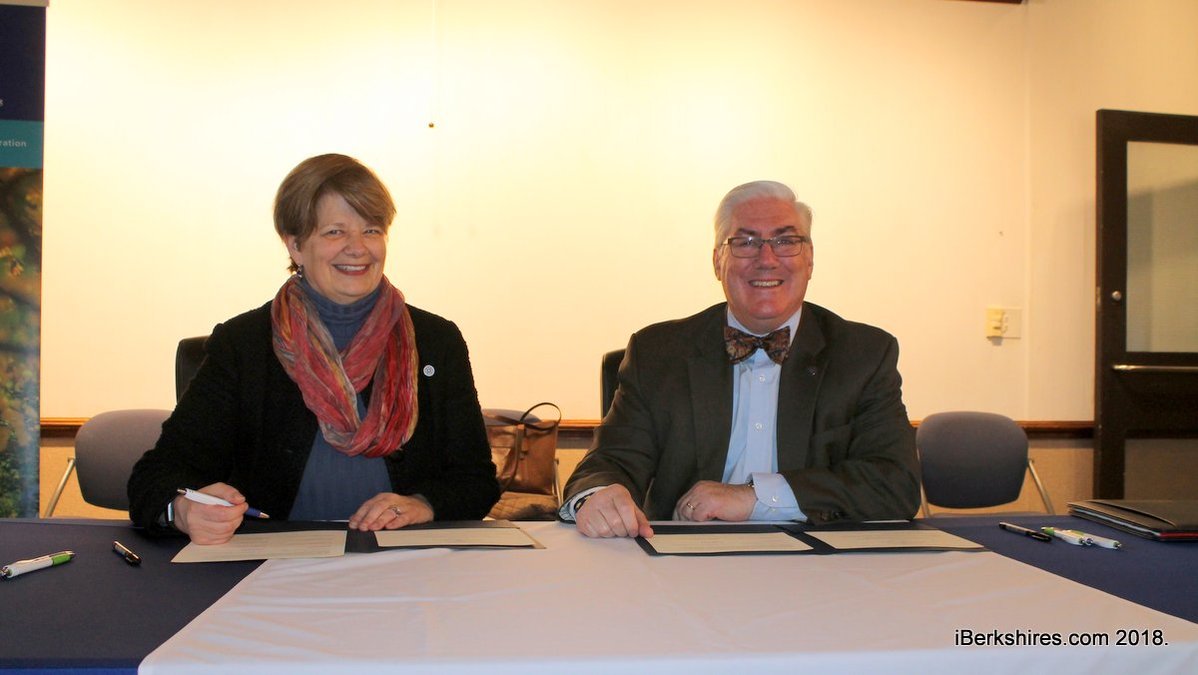
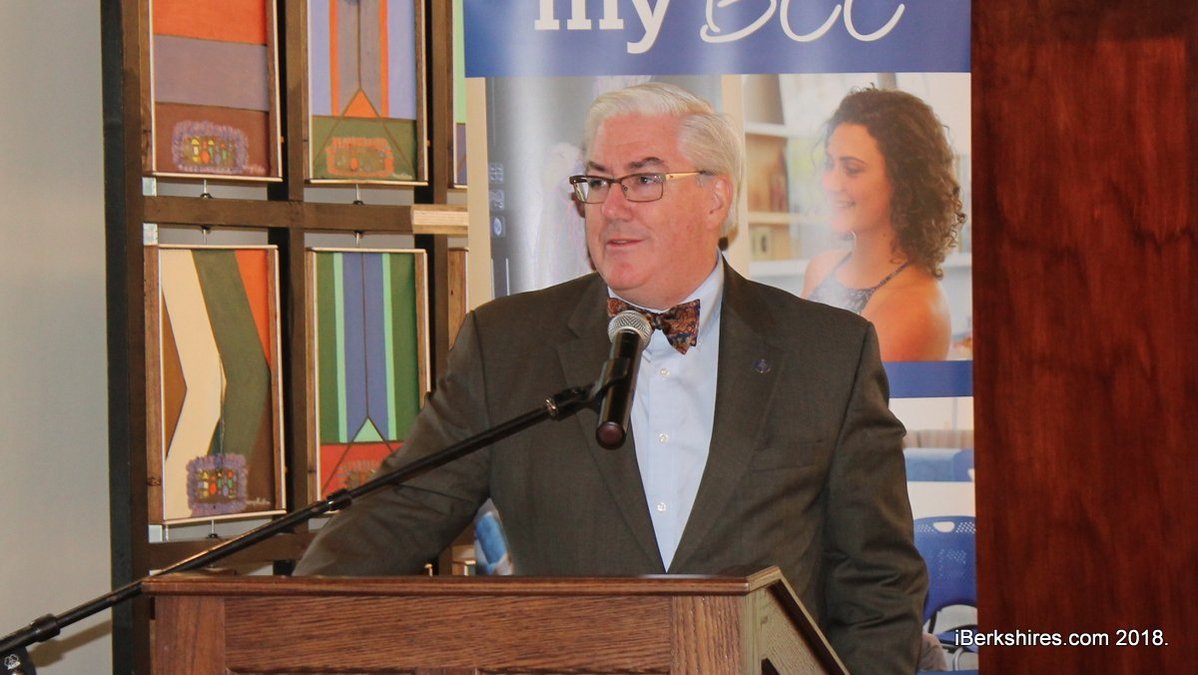
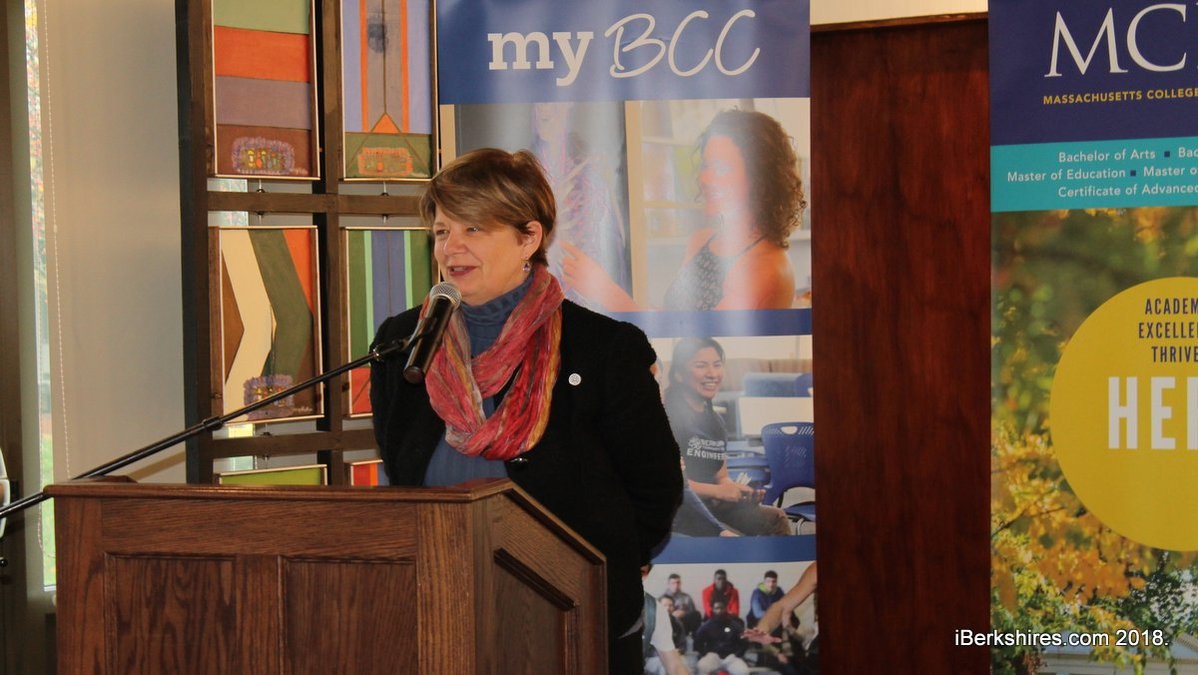
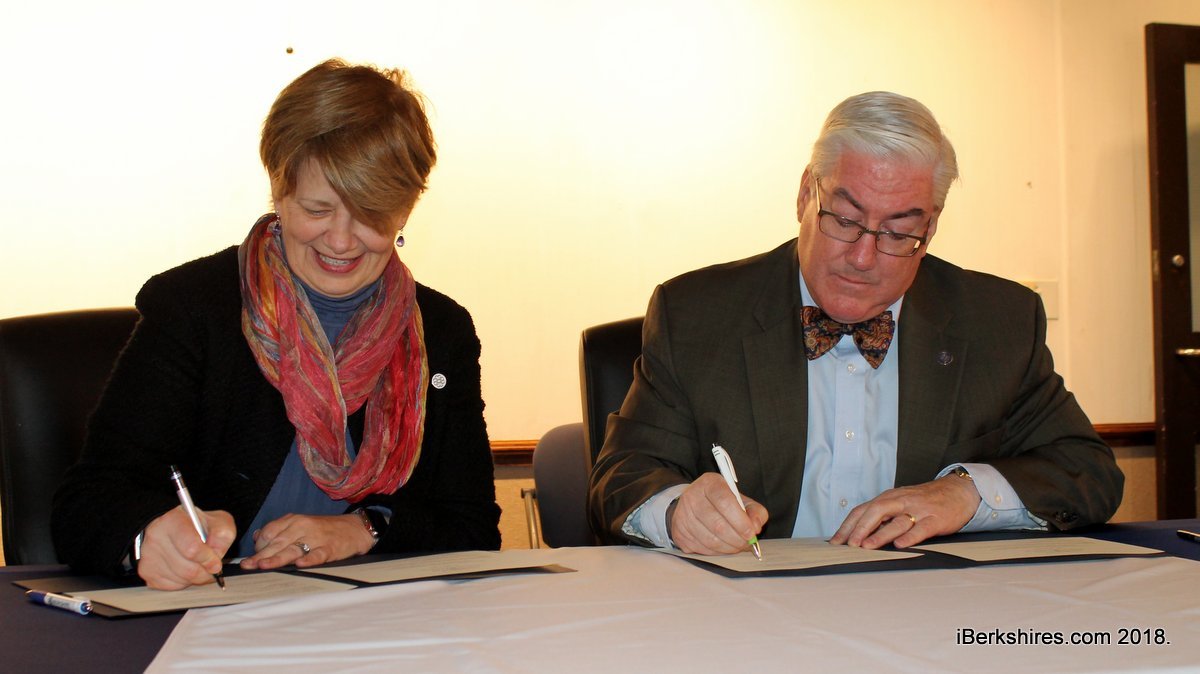
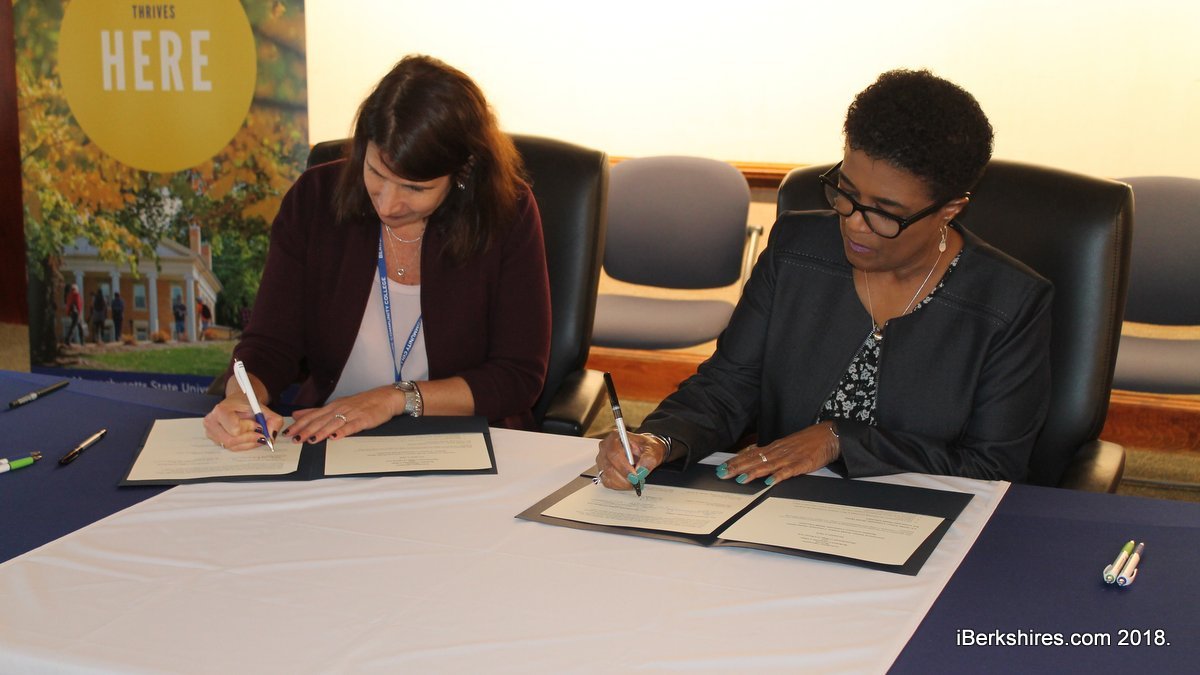
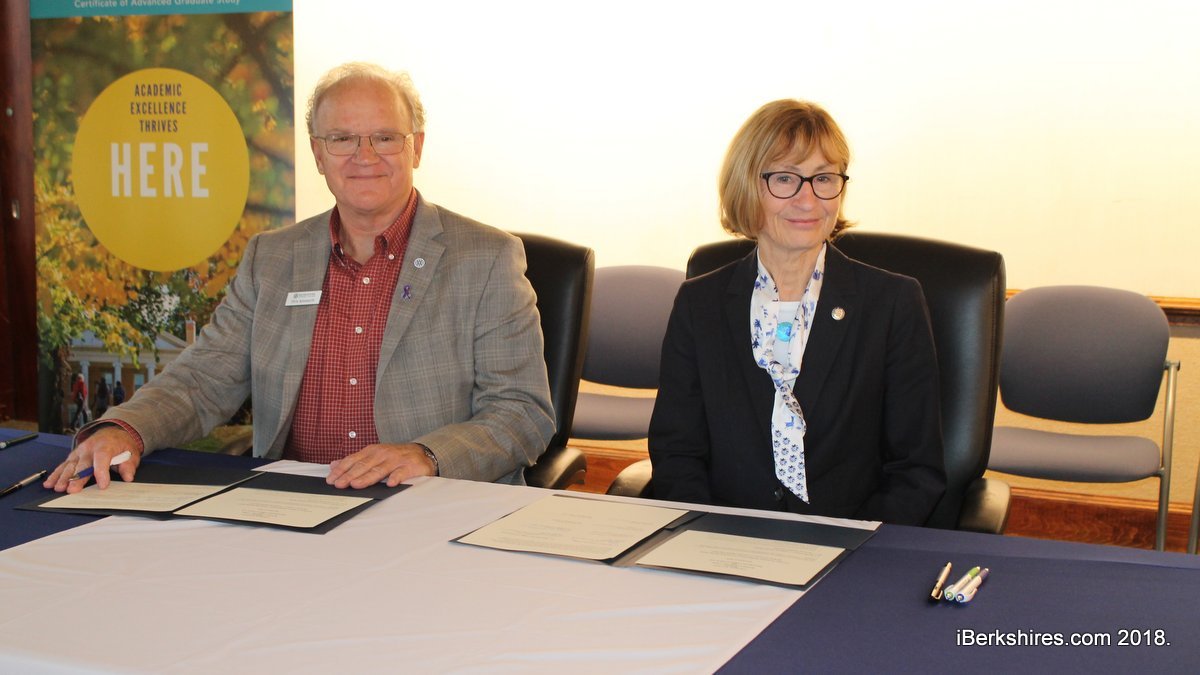
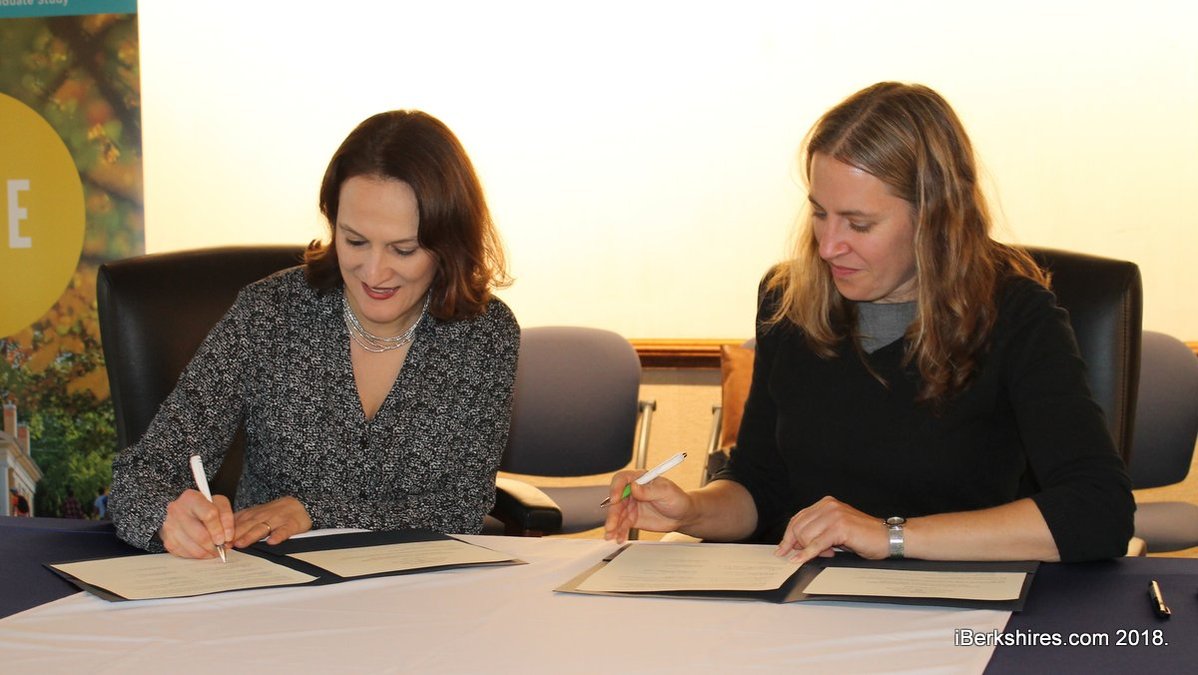
BCC, MCLA Align Community Health Programs
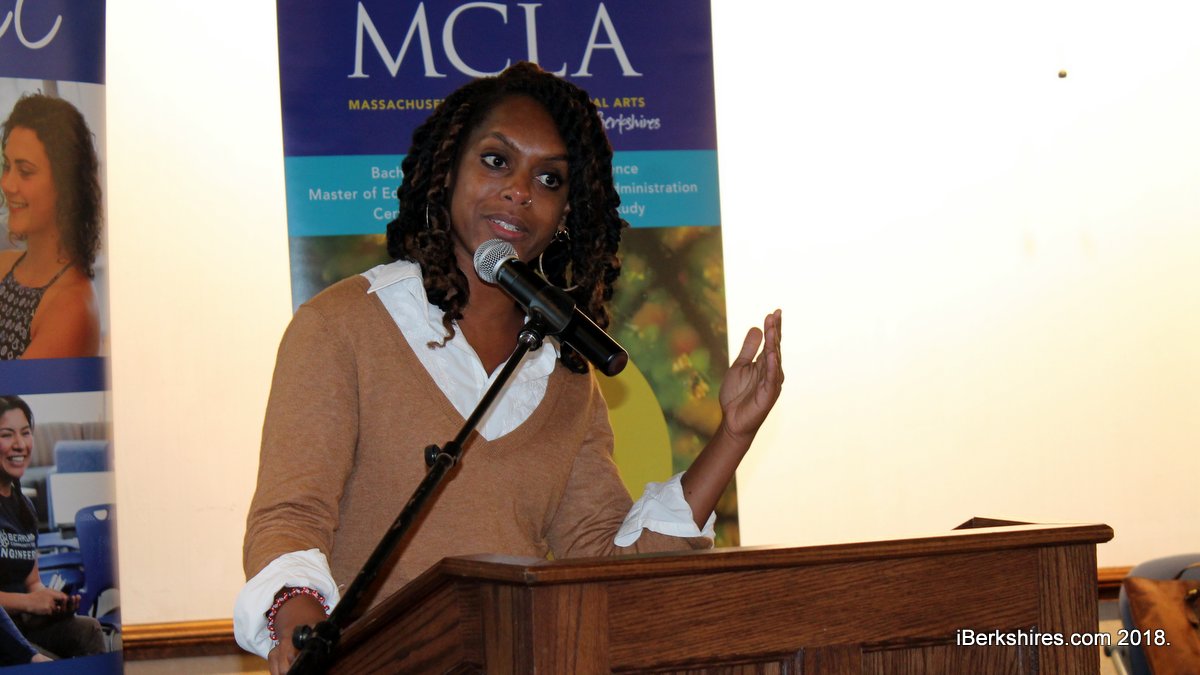
Nicole Porther from MCLA said the need for trained community health professionals is growing as the population ages.
Berkshire Community College and the Massachusetts College of Liberal Arts have recognized that need and on Tuesday signed an articulation agreement to start training those professionals.
"There are career opportunities which are so critical to well-paid positions doing work people love. We are particularly proud of getting our side of this launch and being able to align it so well with what is happening at MCLA," said BCC President Ellen Kennedy said.
Both schools recently developed programs for community health. BCC started a certificate program and MCLA created a health sciences and a community health education program. A new agreement between the two schools aligns the two schools' programming to create a seamless transition from an associate's degree to a bachelor's degree.
"It is a very dynamic partnership and one we definitely need considering our population keeps changing. We have new health issues. We have an aging population," said Nicole Porther, coordinator of the Community Health Education program at MCLA.
The programming stems from a U.S. Bureau of Labor Statistics report predicting growth in the progression to increase 16 percent in the next decade. The job is a middle-ground between medical and social work, helping people understand what is happening medically and connecting them with the information and resources they need.
MCLA President James Birge knowns firsthand how important of a job it can be. He said his daughter has a complicated medical condition and if it weren't for community health nurses, he and his wife would struggle to understand all of it.
"It brings a great amount of comfort to me and my wife Lisa when someone can explain to us what is going to happen with a new strategy or new drug," he said.
Elena Nuciforo headed the effort to craft a program at BCC. She said it is particularly important to have locally trained professionals who understand the issue in the county.
"We will have a whole group of professionals who are locally trained, which in community health is really really important," Nuciforo said.
She said Berkshire Medical Center is already hiring more community health workers. Kennedy added that insurance companies are now covering services provided by community health workers and educators, which will add to the demand.
.JPG)
Elena Nuciforo was an integral part in aligning the two programs.
Nuciforo sees a path starting in high school when students can come to BCC and earn their first three credits. From there, they become students of the college and after graduation, easily move to MCLA. Some students may opt to become on the ground workers while others can continue on with education and become trainers.
Kennedy said she's seen interest in those working in health fields who are looking to change trades.
"This is an important program. Two years ago we launched two new academic programs, health sciences, and community health education. With the signing today both programs will have a pathway between Berkshire Community College, MCLA, and the community," Birge said.
The articulation agreement is one of a number the county's two public colleges have signed in recent years. BCC's Vice President of Academic Affairs Jennifer Berne says it is one of many more.
"I think this is one of many partnerships that we may pursue that are in service of both of our institutions but even more in the service of the community," Berne said.
Tags: articulation, BCC, health care, MCLA,

